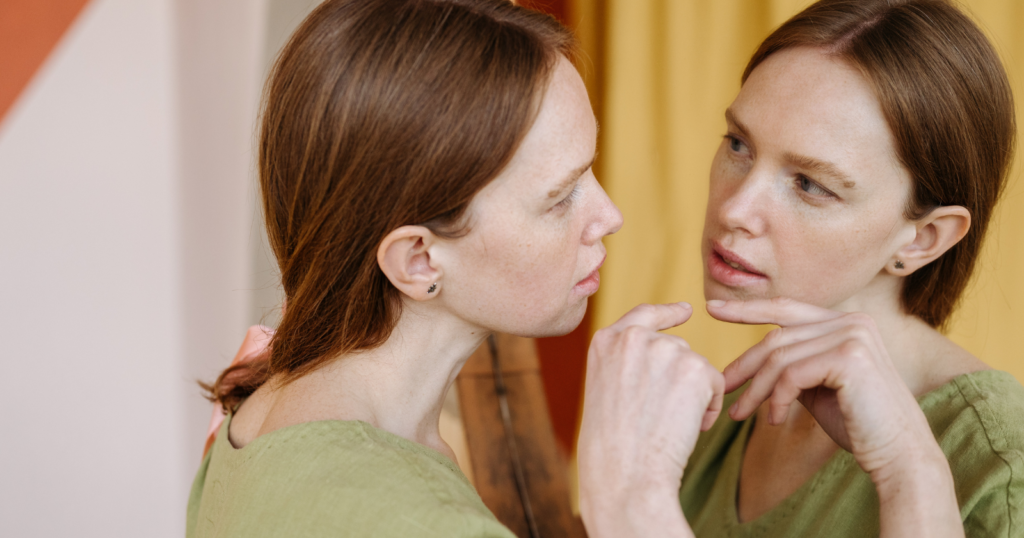In the realm of self-help and relationship advice, a phrase often echoed is: “You have to love yourself first before anyone else can love you.” This relationship cliché is frequently treated as an unquestionable truth. However, just because a belief is repeatedly heard does not make it inherently true. Today, we will thoroughly debunk this commonly held notion that has caused significant damage, especially to those struggling with self-love.
The Ubiquity of the Phrase
You’ve likely encountered the mantra: “You’ve got to love yourself first to find someone who loves you.” While often given with good intentions, aiming to foster self-respect and self-worth, the constant repetition has turned it into a supposedly sacred truth. Yet, this belief is not as infallible as it appears.

The Flaws in the ‘Self-Love First’ Argument
1. Self-Loving People Would Not Endorse This
A truly self-loving person understands the importance of interpersonal connections and the need to be loved by others. They recognize that this need cannot be paused. A self-loving individual would never strive to become an independent island, shutting down their need for external love to achieve self-love independently. Recognizing that meeting one’s needs, including those involving others, is a crucial aspect of self-love is fundamental.
Example: Imagine a person who is deeply committed to self-love. They would not isolate themselves to achieve self-love before entering a relationship. Instead, they would seek healthy relationships that fulfill their need for love while continuing to work on their self-worth.
“The Allure of Self-Love and the Myth of the Self-Sufficient Island” by Psychology Today: (https://www.psychologytoday.com/us/blog/the-upside-things/201911/self-love)
2. The Illusion of Self and Other
At a fundamental level, the distinction between ‘self’ and ‘other’ is often an illusion. Self is a concept that is either useful or not depending on the context. If we accept the ultimate truth that we are all interconnected and made of the same conscious energy, then loving oneself and loving others are not distinct acts. Every form of love is, in essence, self-love.
Example: Consider the practice of compassion meditation, which emphasizes extending love and kindness to oneself and others equally. This practice highlights that the boundary between self-love and love for others is often artificial and fluid.
“Compassion Meditation: Loving-Kindness Practice” by Mindful: (https://self-compassion.org/self-compassion-practices/)
3. The Complexity of Attraction
The Law of Mirroring, also known as The Law of Attraction, is often oversimplified. People tend to misunderstand the complexity of a person’s overall vibration, leading to the false conclusion that someone who does not love themselves cannot attract someone who does. In reality, a person’s desire is part of their vibration. If someone desires to be loved, this desire itself can attract love. Additionally, the love someone gives to others also serves as a point of attraction, bringing love back to them.
Example: A person may feel unworthy of love in certain aspects of their life but still have a strong desire for companionship. This desire can attract a loving partner who helps them see their worth, despite their struggles with self-love.
“The Law of Attraction: A Critical Look” by Greater Good Science Center at UC Berkeley: (https://greatergood.berkeley.edu/)
4. The Vacuum Fallacy
Human beings cannot exist in a vacuum, but the idea that one must love themselves first implies otherwise. Relationships cannot be paused because life is a series of relationships. Throughout the journey of developing self-love, individuals are continually in relationships with others. Romantic relationships, while significant, are not the only relationships. They serve as mirrors reflecting what we reject or embrace about ourselves. The process of developing self-love occurs concurrently with being loved, valued, rejected, or otherwise by others.
Example: Someone working on their self-esteem will still have friends, family, and colleagues influencing their self-perception. These relationships provide valuable feedback and support during their journey toward self-love.
“The Power of Relationships” by HelpGuide.org: (https://www.ny.gov/teen-dating-violence-awareness-and-prevention/what-does-healthy-relationship-look)
5. Relational Trauma and Its Effects
Many aspects of the ‘self-love first’ belief are a response to relational trauma. People who have experienced significant relational trauma may feel empowered and safer believing they can be self-sufficient and immune to the pain of needing others. This belief allows them to avoid facing past wounds and the vulnerability inherent in relationships.
Example: A person who has been hurt in past relationships might adopt the ‘self-love first’ mantra as a defense mechanism. By believing they only need themselves, they protect against the risk of further hurt from others.
“The Impact of Relational Trauma on Your Life and Relationships” by The Gottman Institute: (https://www.gottman.com/blog/reclaiming-our-stories-from-trauma/)
6. The Lifelong Process of Self-Love
Developing self-love is a lifelong journey. It is not a one-time achievement but an ongoing process of embracing all parts of oneself, especially those we tend to reject. This practice involves seeing, hearing, feeling, understanding, and valuing these parts, fostering an internal system built on love and trust. Most people will continue working on self-love throughout their lives.
Example: Consider someone who has always disliked their appearance. Through therapy and supportive relationships, they learn to appreciate their unique features. This journey of self-acceptance is continuous and evolves with their experiences.
“Self-Love: Why It Matters and How to Cultivate It” by Mayo Clinic: (https://mcpress.mayoclinic.org/mental-health/building-self-esteem-is-an-important-part-of-self-care/)
7. Learning Self-Love Through Others
Often, individuals learn to love themselves through the love they receive from others. For instance, someone may grow to appreciate a trait they once disliked because others value it. Such external validation can play a crucial role in developing self-love.
Example: A person who felt insecure about their artistic talents might gain confidence after receiving praise and encouragement from friends and mentors, leading to greater self-acceptance and pride in their abilities.
8. The Necessity of External Love
External love is essential for developing self-love. Telling someone who is desperate for love to first learn to love themselves is akin to telling someone starving for food to grow their own food before receiving help. This advice is not only impractical but also cruel, especially when directed at emotionally vulnerable individuals.
Example: A child seeking love and validation cannot be expected to provide these things for themselves. They need nurturing relationships to develop a healthy sense of self-worth.
“Why We All Need External Validation (and How to Get It in Healthy Ways)” by Psych Central: (https://chintanzalani.com/psychology-behind-seeking-validation-need/)
9. The Power of Choice in Love
The ability to love oneself or accept love does not determine others’ capacity to love. Love is a choice within each person’s power. For example, people often love their pets regardless of the pets’ actions. Similarly, people can love others who do not practice self-love.
Example: A person might deeply care for a friend who struggles with self-esteem. Their love and support can be pivotal in helping the friend see their own worth, independent of the friend’s self-perception.
10. Loving Relationships and Self-Love
The idea that one must achieve self-love before being capable of loving or being loved is a myth. People can and do enter loving relationships while still working on their self-love. The process of loving oneself and being loved by others often occurs simultaneously.
Example: Many couples grow together, with each partner supporting the other’s journey of self-discovery and self-acceptance. Their relationship becomes a source of mutual growth and reinforcement of self-love.
“Self-Love and Relationships: How They Support Each Other” by Verywell Mind: (https://www.verywellmind.com/relationships-4157190)
Practical Implications of Self-Love
Where the Idea Holds True
The notion that self-love enhances relationships has some validity. If you reject parts of yourself, this will likely be mirrored by others. Developing self-love can improve your attraction to healthier, more loving relationships and lead to better personal choices. Practicing self-love enhances your ability to form and maintain loving relationships.
Example: A person who learns to accept and love their imperfections is more likely to attract partners who also appreciate them fully, creating a healthier and more supportive relationship dynamic.
A Continuous Journey
Remember, self-love is an ongoing process, not a destination. Throughout your life, you will be learning and growing in self-love while also engaging in relationships with others. Loving relationships are not reserved for those who have perfected self-love.
Conclusion
The journey of self-love and the experience of being loved by others are intertwined. The belief that you must love yourself first before finding love can lead to unnecessary hopelessness and self-criticism. Loving relationships are not exclusive to those who have achieved perfect self-love. Embrace the simultaneous journey of loving yourself and being loved by others, and recognize that self-love and relational love are parts of a larger, interconnected process.


